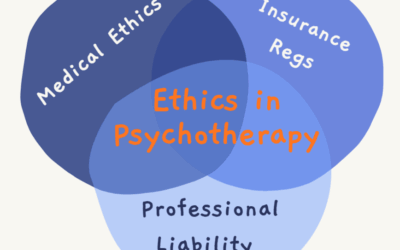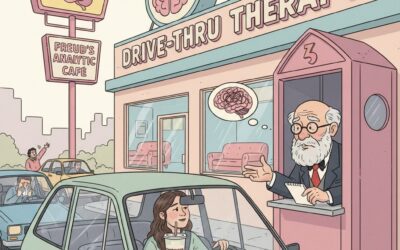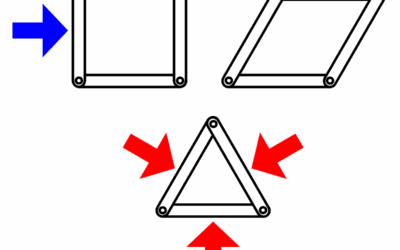Grief, Healing, and Brainspotting for the Loss of a Pet
The bond between humans and their animal companions is a powerful one. Pets provide us with unconditional love, emotional support, and constant companionship. They are a source of joy, laughter, and comfort. So when a beloved pet dies, it’s no surprise that their loss can be devastating.
Grief over the loss of a pet is often minimized or misunderstood by others. Some may not understand the depth of the bond you shared with your animal friend. “It’s just a dog,” they may say, or “You can always get another cat.” But those who have loved and lost a pet understand that it’s not that simple. The grief is real, complex, and deserving of support.
Understanding the Grieving Process
Grieving is a highly individual experience. There is no “right” or “wrong” way to grieve the loss of a pet. How you grieve may depend on factors like your personality, beliefs, and the nature of your relationship with your pet.
While the grieving process is not linear, many people experience some common emotions after losing a pet:
- Shock and Disbelief Even if your pet’s death was expected, it’s normal to feel stunned and find it difficult to accept the reality of the loss.
- Sadness Profound sadness is a universal experience of grief. You may feel waves of heartbreak, emptiness, despair, and loneliness.
- Guilt It’s common to feel guilty about your pet’s death, even if it was out of your control. You may question if you did enough for them or blame yourself for decisions made about their care.
- Anger You may feel anger at the circumstances surrounding your pet’s death, at yourself, or at others involved in your pet’s life and care. You may even feel angry at your pet for leaving you.
- Acceptance Over time, the intensity of grief lessens. You still miss your pet, but you start to accept the reality of the loss and make room for the pain. You begin to find a new way forward without your beloved companion.
There’s no set timeline for grieving. Don’t pressure yourself to “get over it” or “move on” before you’re ready. Be patient and compassionate with yourself as you navigate this painful time.
Seeking Support
Grieving the loss of a pet can feel very lonely. You may feel isolated, especially if those around you don’t understand the magnitude of your loss. It’s important to reach out for support and find an outlet for your grief. Consider some of these options:
- Confide in understanding friends or family members. Lean on the people in your life who “get it” and will listen without judgement.
- Join a pet loss support group. Connecting with others who are going through a similar experience can be incredibly validating and healing. Many animal clinics, shelters, and counseling centers offer pet bereavement groups.
- Memorialize your pet. Having a way to tangibly honor your pet’s memory can be comforting. Consider making a scrapbook, planting a tree in their name, holding a memorial service, or donating to an animal welfare charity.
- Seek professional grief counseling. A therapist specializing in grief, especially one with experience in pet bereavement, can provide invaluable support. They can help you process difficult emotions and develop coping strategies.
Self-Care Practices
While you’re grieving, it’s more important than ever to take care of yourself. Be gentle with yourself and prioritize self-care, even when you may not feel like it. Some self-care practices to consider:
- Feel your feelings. Bottling up or ignoring your pain will only prolong the anguish. Let yourself cry, scream, talk it out, or express your grief in a way that feels right to you.
- Express yourself creatively. Using creativity to express your grief can be healing. Write about your pet, paint, make a memorial collage, or engage in another soothing creative practice.
- Take care of your body. Grief is exhausting. Help your body weather the stress by prioritizing sleep, eating nourishing foods, staying hydrated, and moving your body in gentle ways.
- Spend time in nature. Nature has a way of soothing our pain and helping us gain perspective. Take walks, sit under a tree, tend to a garden, or watch a sunset.
- Practice mindfulness. Mindfulness, meditation, and deep breathing exercises can help anchor you in the present moment when grief threatens to pull you under.
How Brainspotting Can Help
Brainspotting is an emerging psychotherapy approach that can be a powerful tool for processing grief, including pet loss. Developed by Dr. David Grand, Brainspotting is based on the idea that where we focus our eyes can impact how we feel.
In a Brainspotting session, a therapist helps you position your eyes in a specific way while thinking about a distressing issue, like pet loss. This eye position is thought to access deeper parts of the brain that store emotions and trauma. From this “brainspot,” you are able to process grief and pain in a profound way, beyond what is possible through talk therapy alone.
Brainspotting can help you:
- Access and process deep-rooted grief that may feel “stuck”
- Release trauma held in the body related to your pet’s death
- Reduce the intensity of painful images, memories, and emotions
- Experience reductions in overall distress and symptoms of traumatic grief
If you feel “stuck” in your grief and traditional counseling hasn’t brought relief, consider finding a therapist trained in Brainspotting. While no therapy takes away the pain of losing a pet completely, Brainspotting may help you find a sense of ease, acceptance, and the ability to move forward.
Therapy for Grief and Loss
Losing a pet is one of the hardest experiences an animal lover will face. The depth of grief can be surprising and overwhelming. Know that what you are feeling is valid, and you’re not alone.
Be patient and compassionate with yourself as you grieve. Reach out for support from people who understand. Engage in self-care practices that soothe and comfort you. If you’re struggling to cope, consider reaching out to a grief counselor, especially one trained in Brainspotting.
In time, the anguish of losing your pet will lessen. You will find a way to carry their memory forward with love. You may even open your heart to loving a new animal again. As the writer Dean Koontz said, “Once you have had a wonderful dog, a life without one is a life diminished.”
Wishing you peace and comfort on your journey through pet loss. May the memory of your beloved companion animal bring you solace and light.
Bibliography
Durkin, A. (2009). Losing a pet: Understanding the grieving process. American Humane. Retrieved from https://www.avma.org/resources-tools/pet-owners/petcare/coping-loss-pet
Grand, D. (2013). Brainspotting: The revolutionary new therapy for rapid and effective change. Sounds True.
Harris, E. (2021). How to support someone grieving the death of a pet. Psych Central. Retrieved from https://psychcentral.com/lib/grieving-the-loss-of-a-pet
Irwin, M. (2020). The grief of losing a pet is traumatic and universal. Scientific American. Retrieved from https://www.southernwindk9.com/post/why-losing-a-dog-hurts-so-much-the-science-behind-the-grief
Koontz, D. (2009). A big little life: A memoir of a joyful dog. Bantam.
Pich, J. (2019). Using Brainspotting to treat grief and loss. Good Therapy. Retrieved from https://www.goodtherapy.org/blog/using-brainspotting-to-treat-grief-and-loss-0911197
Winch, G. (2018). Why losing a pet hurts so much. Scientific American. Retrieved from https://www.psychologytoday.com/us/blog/the-truisms-of-wellness/201608/why-losing-a-pet-hurts-so-much



























0 Comments